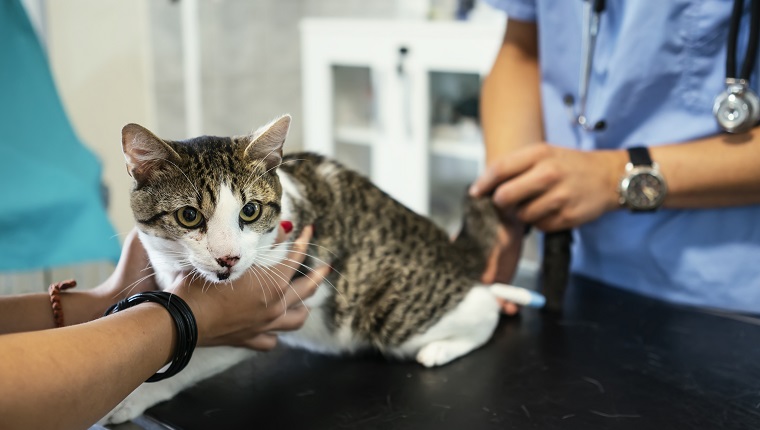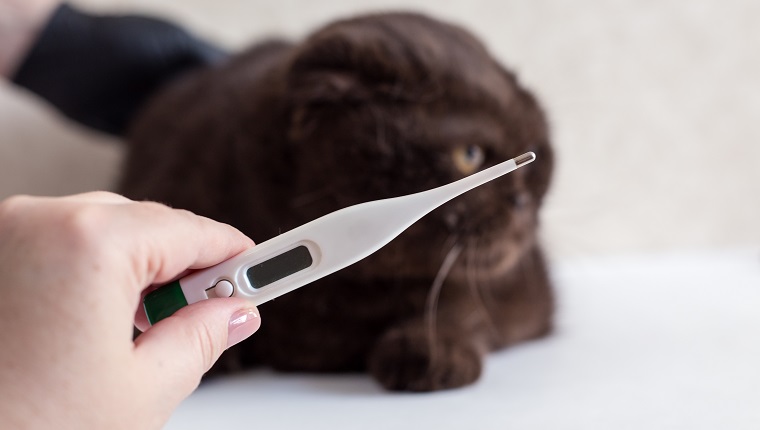A fever in your cat is a symptom that can signal illnesses, infections, or more serious diseases. When it comes to fevers in cats, vets consider a body temperature of over 102.5 degrees Fahrenheit to be the threshold.
If you suspect that your cat is running a fever, then you must seek your veterinarian’s advice right away for a proper diagnosis and course of treatment.
Here’s what you should know about the symptoms, causes, and treatments for fever in cats.
Symptoms Of Fevers In Cats
The most obvious symptom of a cat with a fever is running a temperature; although, taking a cat’s temperature can be a tricky process and might require help from your vet to carry out correctly.
Beyond having a temperature over 102.5 degrees Fahrenheit, here are some of the other most common symptoms that might appear in cats who suffer from a fever:
- Being withdrawn and lethargic
- A lack of appetite
- Vomiting
- Weight loss
- Breathing faster than usual or panting
Causes Of Fevers In Cats

There are a wide range of illnesses and conditions that could cause a fever in your cat, so it’s always important to seek your vet’s advice.
Some common causes of fevers in cats are:
- Viral infections
- Tumors
- Injuries stemming from a fight
- Fungal infections
- Parasites
- Bacterial infections
Treatments For Fevers In Cats
A cat’s temperature is usually taken by a thermometer inserted into the animal’s rectum. This is a procedure that’s best carried out by a vet; otherwise, you might end up hurting or causing fear in the cat.
If a cat shows a fever, the next step is usually to undergo a series of exams to try and work out the cause. Presenting your vet with your cat’s full and detailed medical history can help make this process more efficient for all parties concerned.
Once your vet diagnoses the underlying condition that’s causing the fever in your cat, they might prescribe any number of courses of treatment. Follow their instructions closely.
In general, when a cat is recovering from a fever, it’s important to make sure that they stay well hydrated. In some more extreme cases, vets might suggest putting a cat on an intravenous drip.
When you return home with your feline, it’s important to provide a calm, quiet, and comfortable environment for them to recover.
Has your cat ever had a fever? How did your vet treat it? Tell us about it in the comments below.









